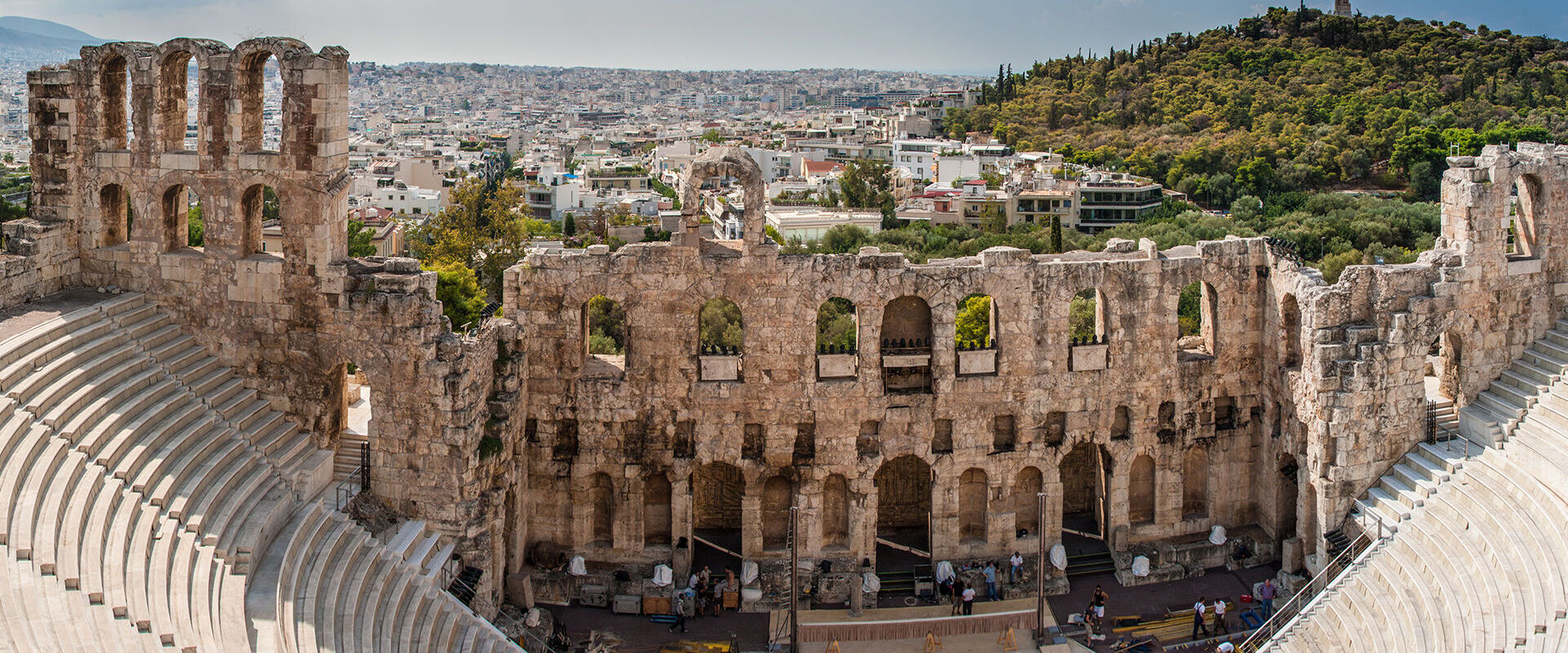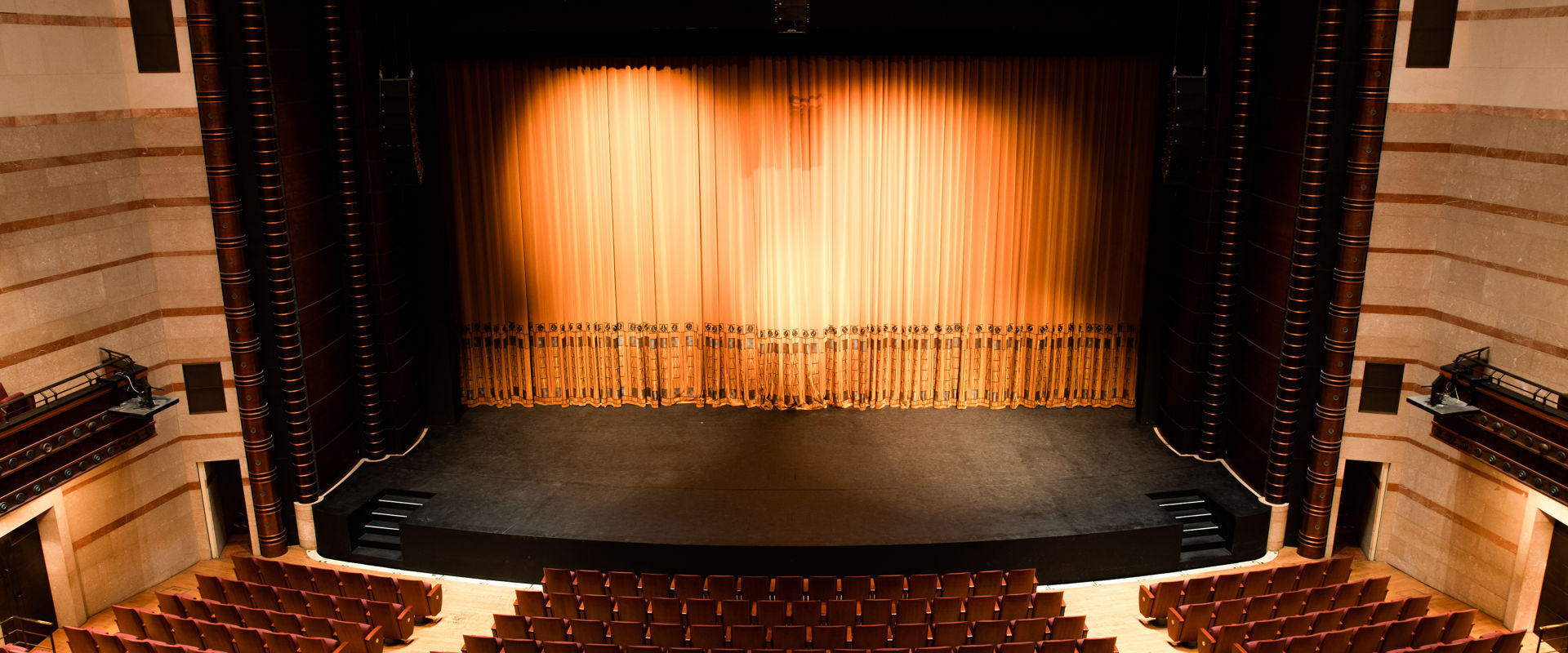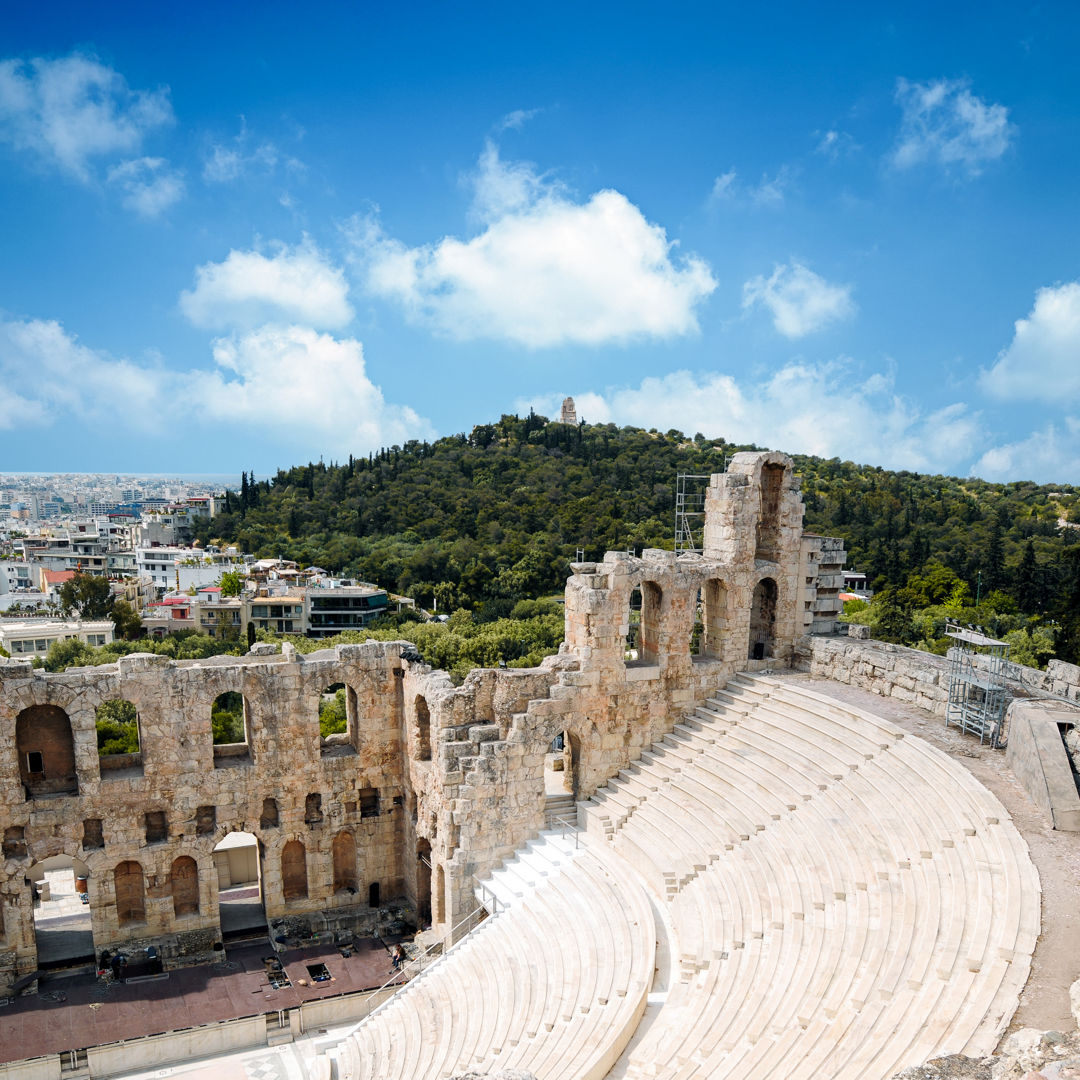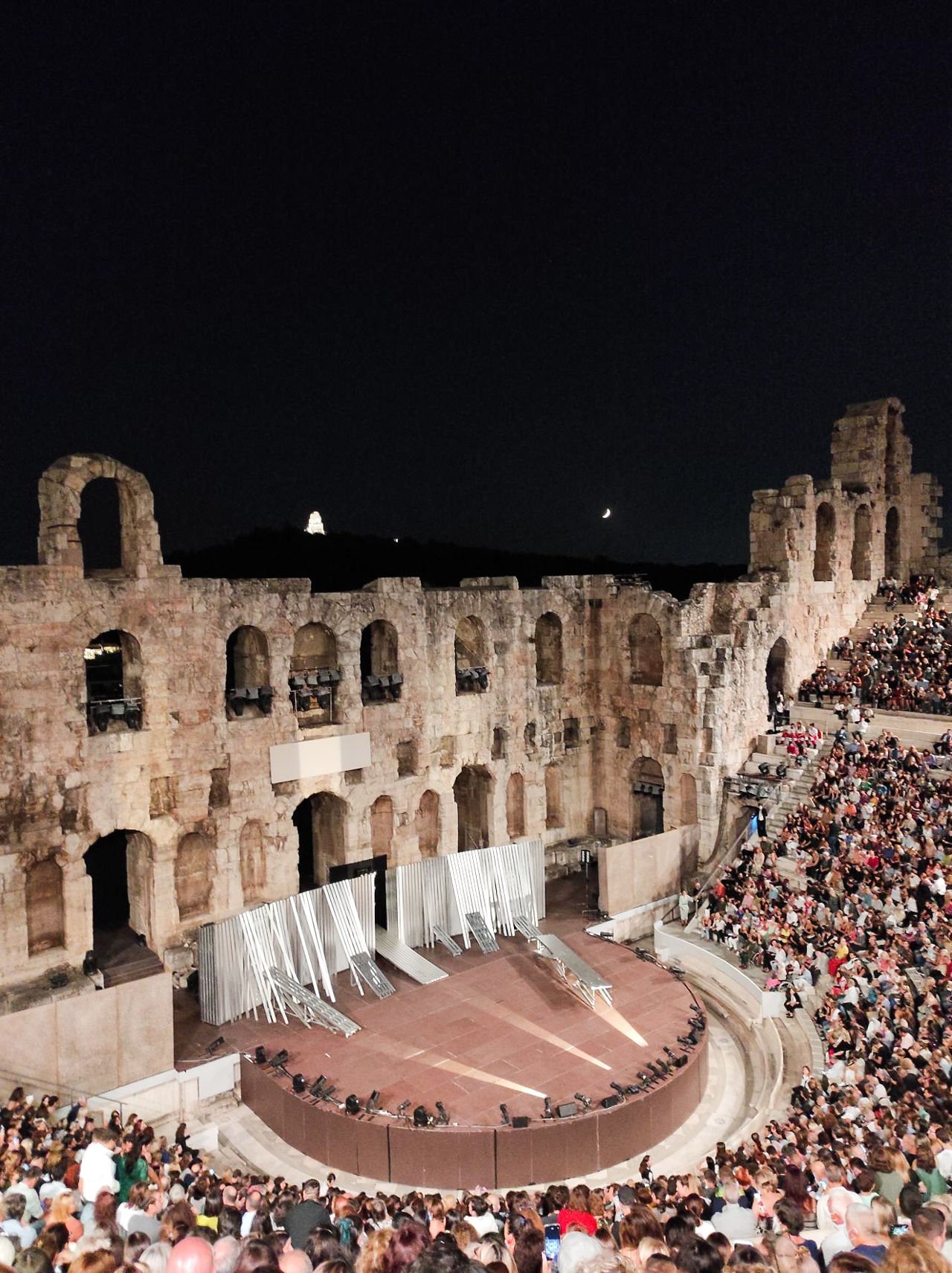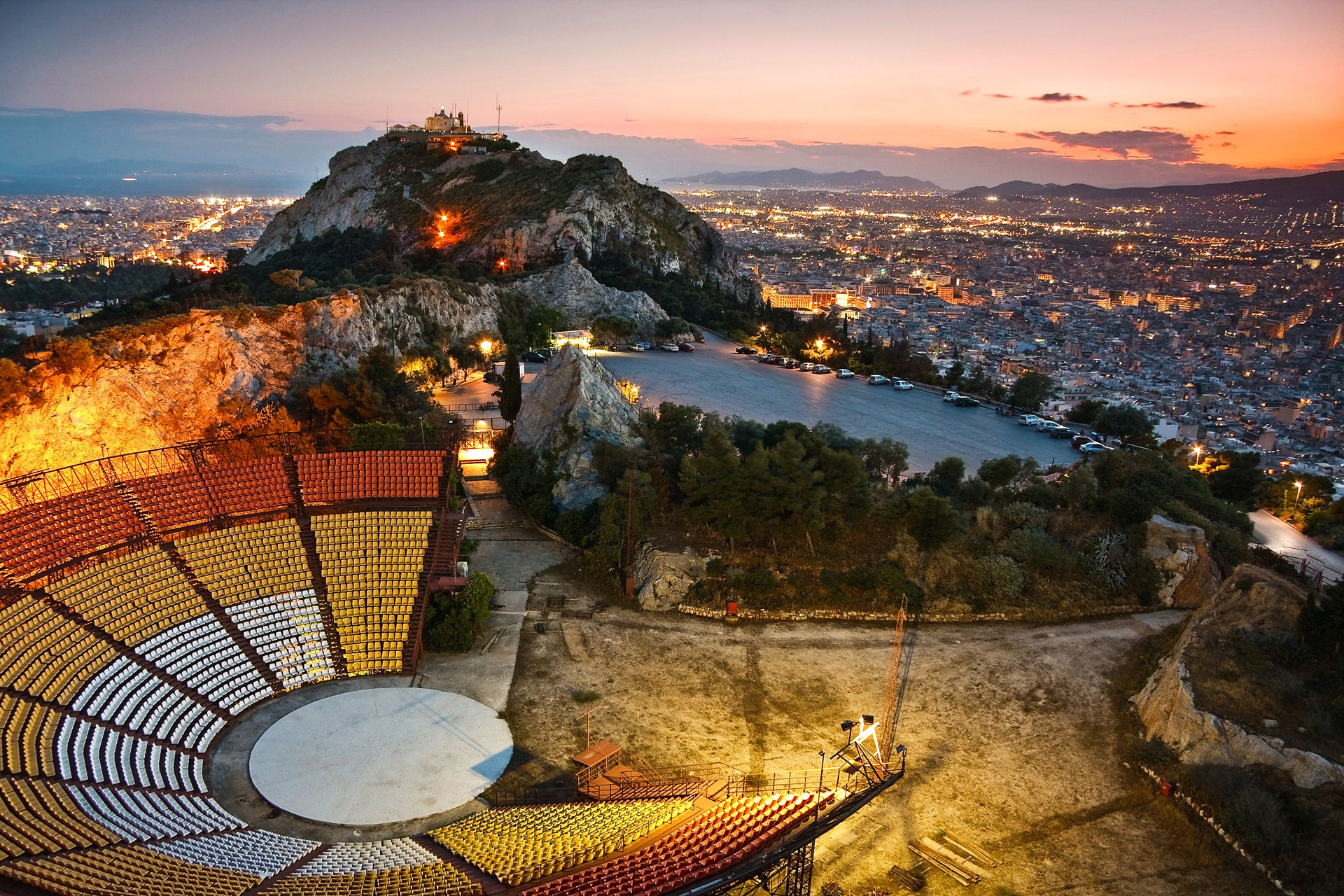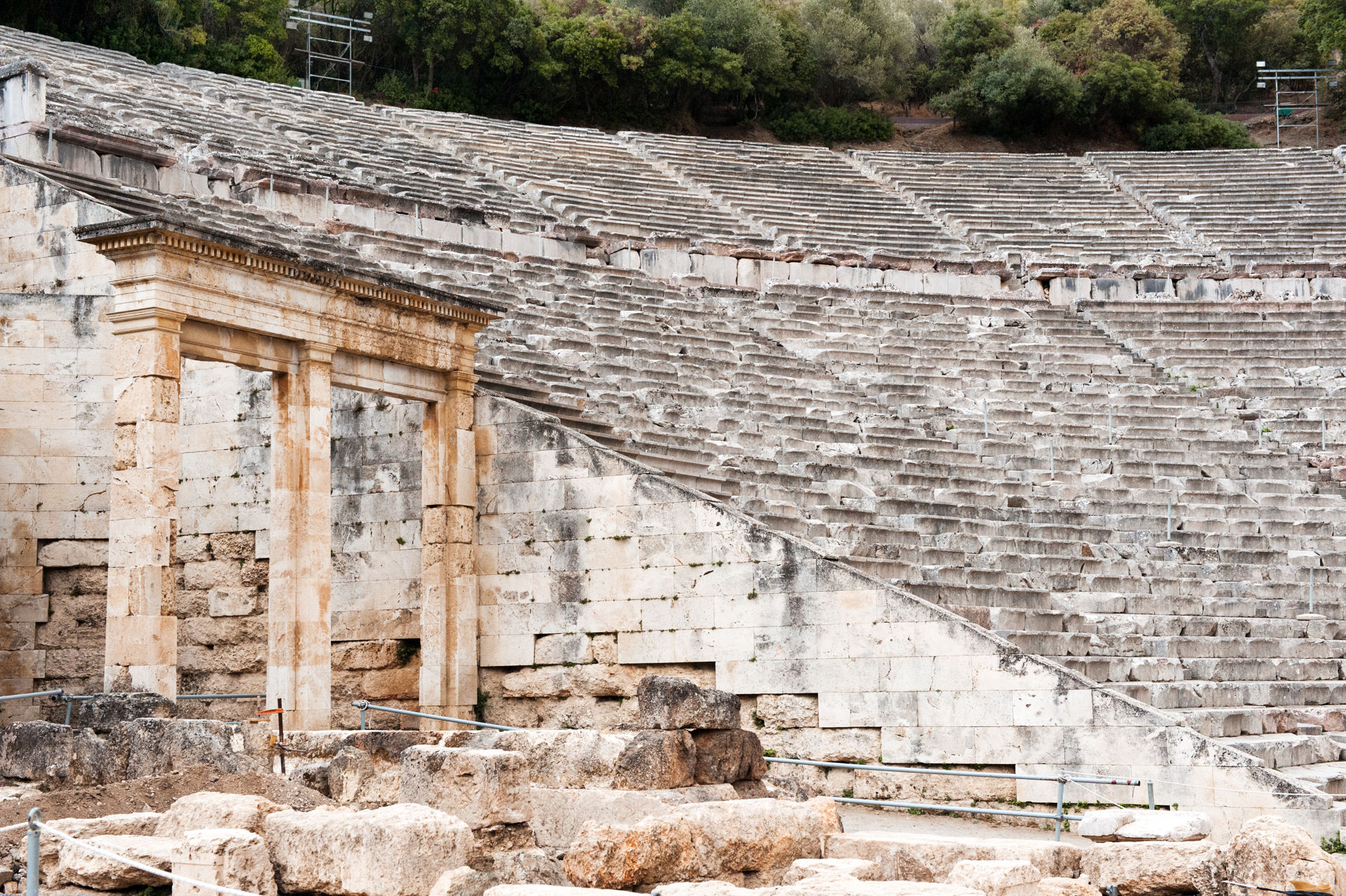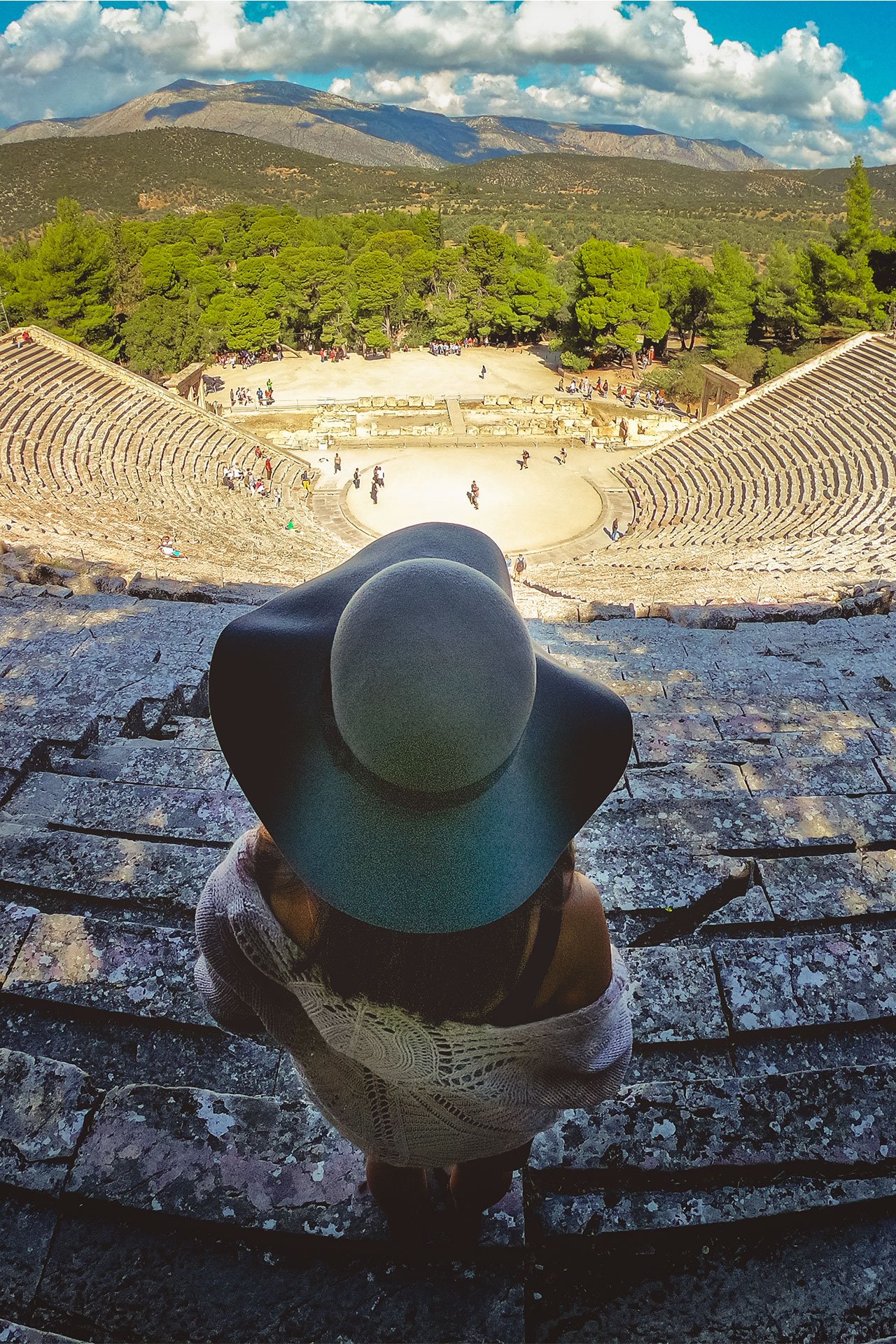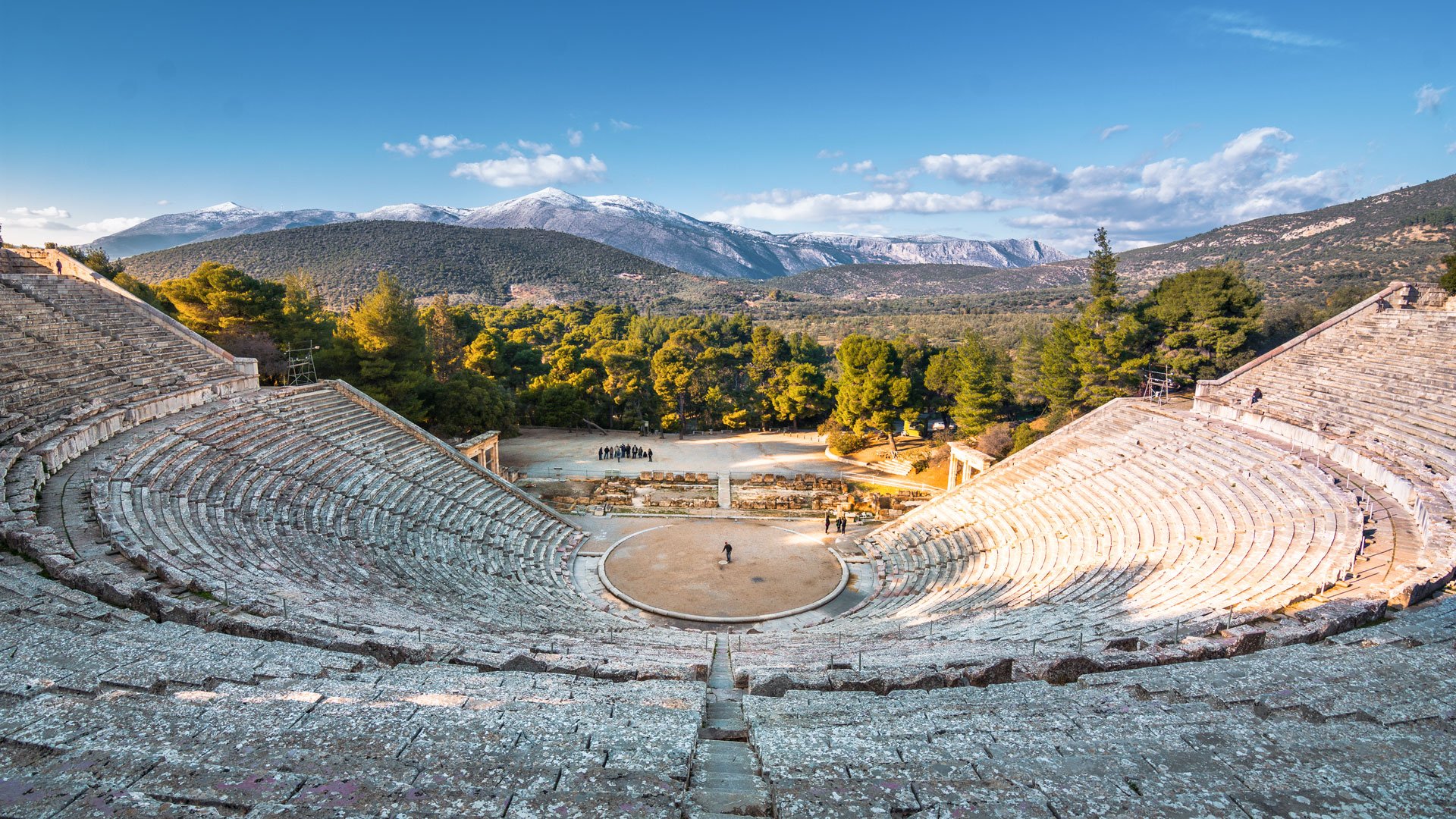If you love culture, what’s the first thing that comes to mind when you think of Athens? For sure, the Acropolis – the eternal symbol of the city’s Golden Age under Pericles in the 5th century BC. Or perhaps it’s the ideals and philosophical doctrine of Plato and Socrates? But what about theatre? Well, if you’re a drama lover it should do because Athens is the birthplace of theatre and – unknown to many visitors – continues the tradition today with classic and modern productions that (especially if accompanied by English surtitles) can be a highlight of your holidays in the Greek capital.
The theatre scene in Athens
The main theatre seasons in Athens are spring/summer and autumn/winter, with over 50 productions of plays ranging from classic ancient Greek drama to adaptations of European masters like Shakespeare and Ibsen (some with English surtitles).
The venues are half the experience, with the National Theatre considered one of the most beautiful buildings in Athens (having been commissioned as the Royal Theatre by King George I and designed by legendary architect Ernst Ziller in the late 19th century), the Poreia Theatre (a modern highlight) and the iconic Pallas Theatre near Syntagma Square. There are more than 70 theatres halls across Athens in all, as well as other iconic cultural venues that stage plays. The Stavros Niarchos Foundation Cultural Centre, Onassis Cultural Centre and Athens Concert Hall (Megaron) all have fantastic theatre halls that stage plays. And there’s no doubting the summer cultural highpoint: The Athens & Epidaurus Festival, with epic productions in the Odeon of Herodes Atticus and other venues in Athens and at the legendary theatre of Ancient Epidaurus (2hrs from Athens by car).
All (including the purpose-built theatres) stage plays with English surtitles – although you’ll have to search through the programs on the official websites for details. But what makes going to the theatre in Athens a truly once-in-lifetime experience is that, while you’re watching a play, you pinch yourself at the thought that you’re doing so in the city where it all began.
The birth of ancient Greek drama
The roots of theatre in Athens can be traced right back to the Archaic period (7th and 6th centuries BC) with the cult festivals honouring Dionysus (the god of fertility, wine and revelry) and ancient Greek chants known as the dithyrambos (a kind of hymn based on improvisations). Recitals quickly became crowd favourites and the lead dancers of these ceremonies are now considered the world’s first actors.
They were so popular that Athens’ leader at the time, Pisistratus, had the Theatre of Dionysus built on the south slope of the Acropolis (considered the world’s first theatre), at which the Great Dionysia (or City Dionysia) were held as part of the Dionysia Festival and included competitions for the best tragedy based on the tales of gods and myths.
In 534 BC, we find the first recorded victory in one of these competitions of Thespis, the most popular performer of his time and the origin of the term thespian for actor. Thespis is credited with being the first person to appear on stage playing his own character (often improvised) rather than the story being told exclusively by the choir, which in ancient Greek theatre was a principal storyteller rather than a singing group. Capitalising on his success, Thespis took his acting skills on tour, carrying costumes, masks and other props around the country in a horse-drawn wagon. The rest, as they say, is history.
How the word spread
Everything in today’s theatre stems from these times. The very word, theatre, derives from theatron (viewing place), describing the audience rather than the stage and scene originates from skene (a small building where actors changed masks and costumes and part of a wider performing area that included the proskenion). Meanwhile, tragedy comes from tragos (goat) – in reference to the cult of Dionysus, who was typically represented with a group of satyrs (half-human, half-goat) that followed him around - and odi (as in ode) meaning song.
The greatest ancient tragedy writers (Ayschelus, Sophocles and Euripides) crafted their plays throughout the 5th century BC until, in the 4th century BC, comedy appeared with writers like Aristophanes as representatives of the so-called Attic Comedy.
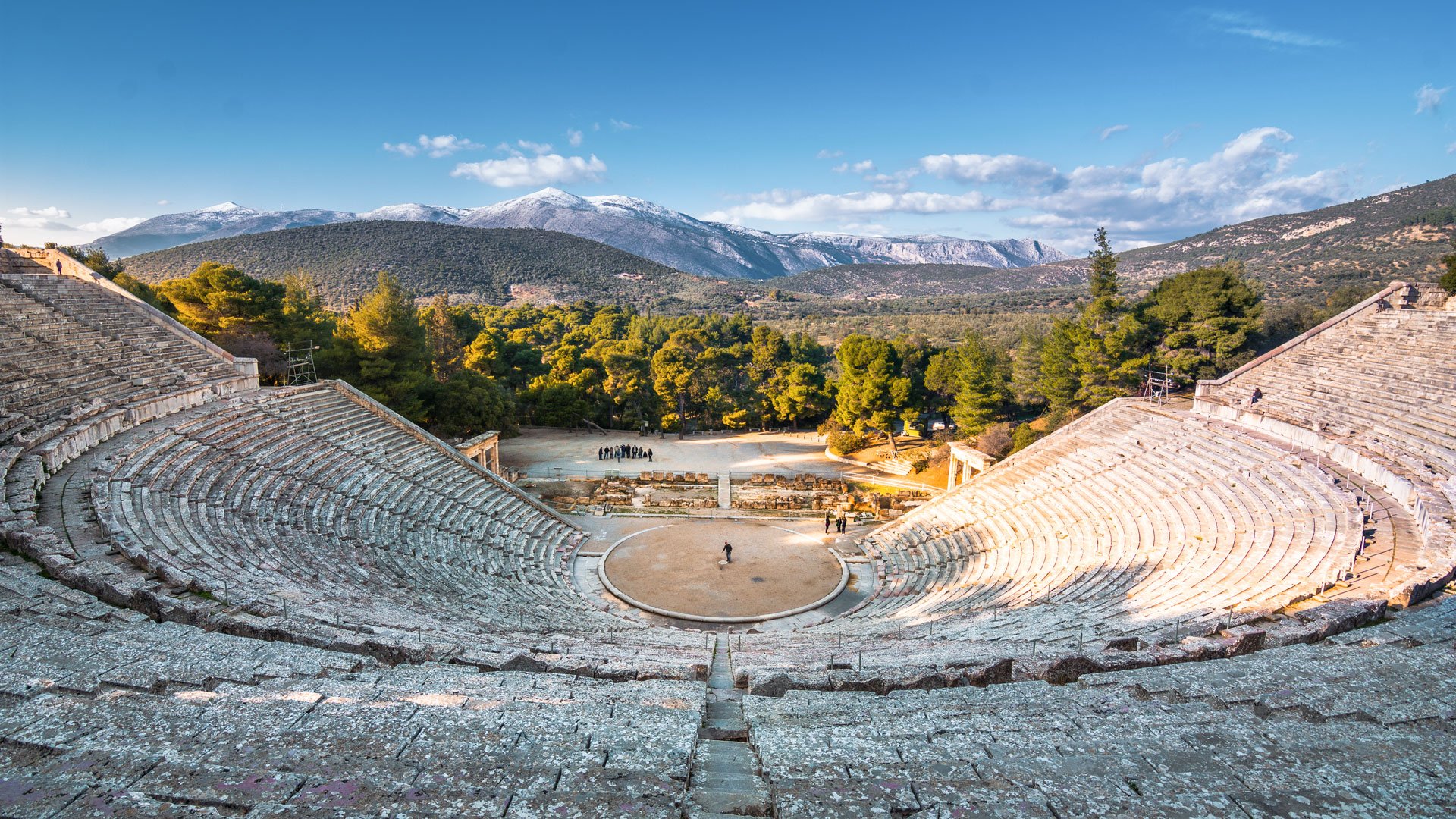
Meanwhile, a third kind of ancient Greek drama, satyr plays (named after Dionysius’ satyrs), also evolved as adaptations from tragedies. Performed during the Dionysian Festival following a group of three tragedies, these were often risqué and overtly sexual (because of the themes of nature and fertility) and were extremely popular. In its heyday, in the 4th century BC, the Theatre of Dionysus could seat an audience of 17,000. Much later, the satyr plays of ancient Greece evolved into the satire of today.
The ancient Greek theatre legacy
The Romans continued the legacy of Ancient Greek theatre and in the 1st and 2nd centuries AD with theatrical performances that were often geared more towards the theme of politics and the idea of city and state. And it was during this time that the Odeon of Herodes Atticus was built, still in use as one of Athens’ iconic theatre venues.
Over the following centuries, however, the Byzantine and Ottoman periods saw a decline of theatre as an art form in Greece, with the exception of Crete and the Ionian Islands in the 16th century, which were under Venetian rule.
Ancient Greek theatre, nevertheless, showed itself to be a forerunner of the art as it flourished within Europe, with Italy playing the dominant role during the Renaissance and period of romanticism, in turn influencing France, Spain and England. The movements of realism, expressionism and naturalism followed as a natural evolution.
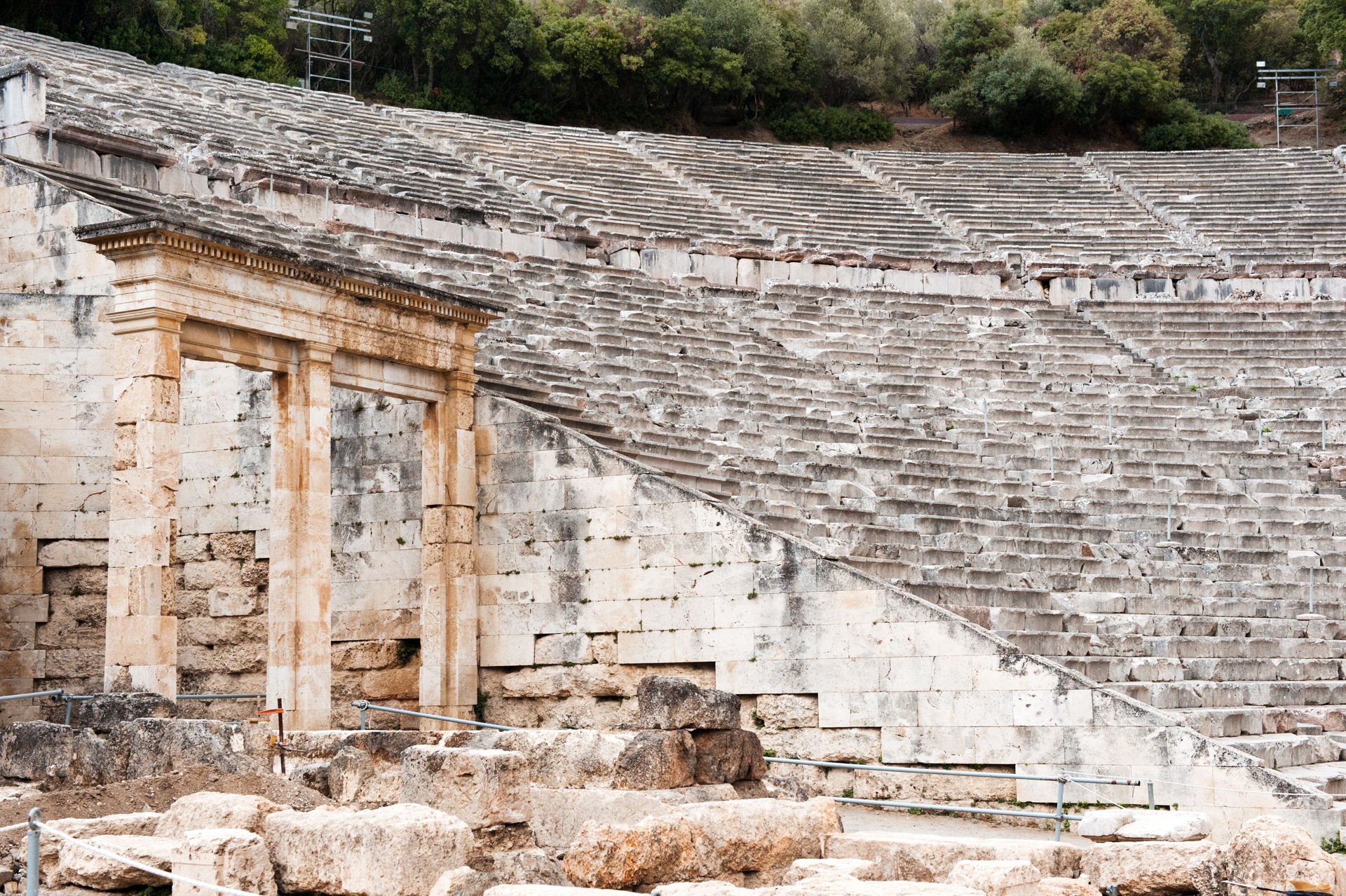
Athens resurfaces as a theatre hub
For Greece, the story picks up again after the 1821 revolution against the Ottomans and, as soon as Athens became the capital of the nascent Greek state, theatre began to flourish once again in the place where it was invented.
As the city grew more prosperous at the end of the 19th century, Greek theatre became more organised and creativity was cultivated in all its forms. Writers, actors and directors rose in society and the city’s landmark modern stage was established in the form of the Royal Theatre (built between 1895-1901 and renamed the National Theatre after being renovated in the 1930s), laying the foundation for the theatre scene of today.
The 20th century (especially after World War 2) found Athens with a wealth of playwrights and dramatists and, today, young directors and actors continue the tradition that started more than two-and-a-half millennia ago.
In other words, if you’re a theatre lover, it’s an experience you can’t miss. Just like Athens itself.
The theatre experience in Athens
Inspiring, right? There are so many reasons why watching a play in Athens is an unrivalled experience (especially in an ancient Greek theatre) but getting to do so in the place where it all began makes Athens a once-off destination for theatre lovers.
11 Unmissable things to do in Athens
Discover Greece Your Way
Discover authentic local experiences and secure your bookings for activities and tours with our official online rates.
Acropolis afternoon tour with tickets & ...
Wonders of mainland Greece in 3 days - R...
Acropolis Museum Private Discovery Tour
Athens: Greek Designers Shopping Private...
The Grand road trip of Classical Greece ...
Athens: Young heroes - A family mytholog...
AM16 Suites Athens
Blue Riviera Villas & Suites
The Pinnacle Athens
Shila Athens
Nema Hotel Athens
Discover the highest-rated ground transportation services for travelers, based on reviews across Google, Tripadvisor, and Trustpilot.
Welcome Pickups offers a seamless, safe, and enjoyable experience for travelers
Trained Drivers
Hand picked & trained drivers
Low prices
Same price as a regular taxi from the line
Arrival monitoring
Drivers are always on time
Quality support
24/7 email & phone support

